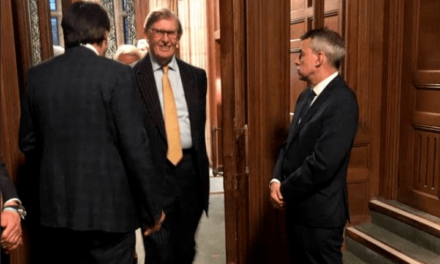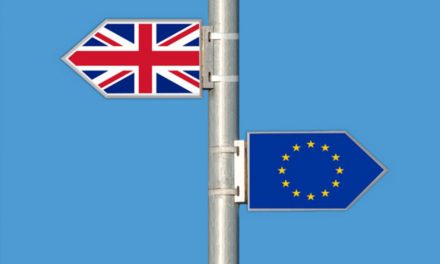The first day of the Committee Stage of the reintroduced Withdrawal Agreement Bill took place yesterday in the House of Commons, during the debate Sir William Cash made the following interventions:
The Chairman of Ways and Means (Sir Roger Gale): Good afternoon, ladies and gentlemen. As this is the first Committee of the whole House of a new Parliament, it might be of benefit to those who are not entirely familiar with the arcane process, and indeed to those who thought they were but are not, if I seek to explain how this proceeds.
You will find on the Order Paper that the amendments are grouped and that helpfully they are grouped not in sequence but by subject. The Chair will try to confine the debate to the subject matter, without being too rigorous in exercising control. Ordinarily, the groups will form the basis of a debate, the first part of which I will introduce and to which the Secretary of State or Minister will then respond. Exceptionally, because this is the first day of a two-day debate to which a plethora of amendments has been tabled, I have deemed it helpful to invite the Secretary of State to open the debate to set out the stall, and on that basis, of course, if the Opposition Front-Bench spokesperson wishes to come in immediately following that, that would also be entirely acceptable.
I have one final point to make. Mr Speaker has decided that, although any Member has a right to speak in this House, it is not desirable for new Members to make maiden speeches during the Committee. He has decided this for two reasons: first, it will simply delay the process, and, secondly—and much more importantly, from the point of view of those new Members—inevitably their freedom of movement to describe their constituencies as the second garden of Eden will be limited. I am advised that there will be an opportunity to participate first on Third Reading on Thursday, when the Speaker will be in the Chair, and then subsequently during the remaining debate on the Queen’s Speech. I hope that is all clear and helpful. With that in mind, we will move to the first group of amendments.
(…)
Sir William Cash (Stone) (Con): During the transitional period, laws will be made in the European Union that we will be expected to obey. Does my right hon. Friend agree, however, that clauses 29 and 38—one of which deals with the review of legislation through the auspices of the European Scrutiny Committee, where we will be affected by our vital national interests being undermined—provide good protection for the United Kingdom’s national interests? Secondly, does he agree that the question of parliamentary sovereignty in clause 38 will complement that by ensuring that the whole process of legislation under the withdrawal agreement will not affect the continuing sovereignty of the United Kingdom Parliament, and that this therefore effectively provides a double lock on the rights of this House as we leave the European Union?
Steve Barclay: My hon. Friend is absolutely right to signpost those two safeguards being put in place, in which he played a significant part, but I would say that there are three. I will come on to the third, if I may slightly push him by making that correction. He is right to say that the European Scrutiny Committee, under his chairmanship, will have the right to trigger debates and scrutiny. Secondly, he has championed the clause dealing with the sovereignty of Parliament, which is set out clearly in the Bill. The third element that I would draw to his attention, which is within this grouping, is our legislating for the Government’s manifesto commitment not to extend the implementation period. That will ensure that there is no extension of the implementation period and will therefore ensure that there is no risk of a further one-year or two-year period during which the issue about which he was concerned in relation to those two other clauses could arise. So, there are three protections, and not just the two that he mentioned.
Sir William Cash: Very, very good!
(…)
Sir William Cash: I just wanted to clarify one thing. The Labour Front Bench and the whole of the Labour party—with few exceptions, if any—voted against the repeal of the European Communities Act 1972. First, does he confirm that that was the case—I do not think that he can deny it? Secondly, does that not make it clear that, back in 2018 when that Act received Royal Assent, they were refusing to accept the will of the British people and were against repealing the 1972 Act?
(…)




